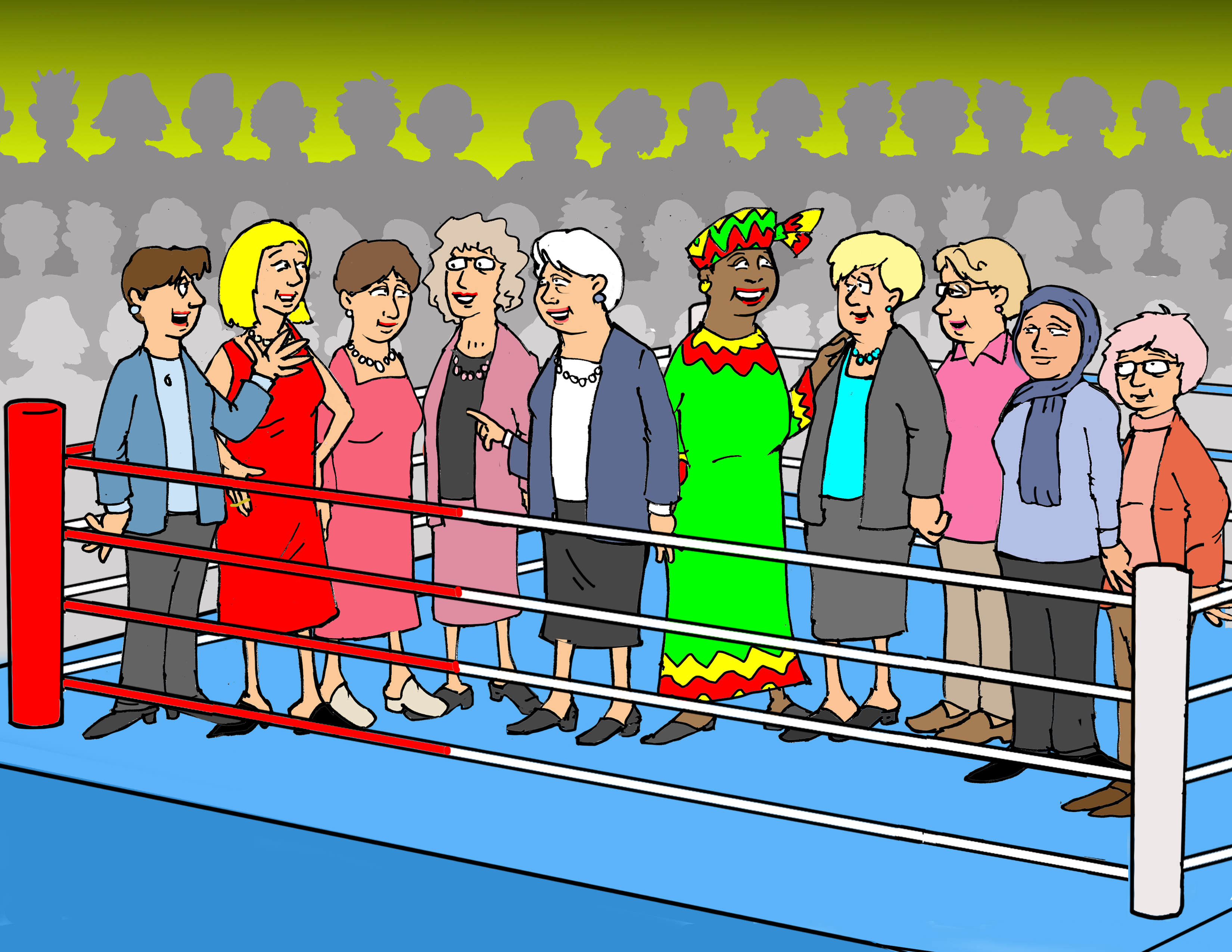Sustainability Round Two: The Women’s Match
Posted by Daniel Hoornweg on September 28, 2023

Last month the men’s Sustainability Round One match featured Vaclav Smil versus Noah Yuval Harari. When trying to come up with a similar Round Two for women, one is struck by the difference in the “battle of the sexes”. Women seem to spend less time fighting each other and focus more on the broader sustainability battle at-hand.
There are many women leading the fight for sustainability including trailblazers like Kristalina Georgieva and Inger Anderson (heads of IMF and UNEP respectively), Elizabeth Dowdeswell (Lieutenant General of Ontario, former head of UNEP), Rachel Kyte, Catherine McKenna, Gro Harlem Brundtland, Christiana Figueres, and those who went before like Elinor Ostrom (the only female recipient of the Nobel prize in Economics), Wangari Maathai (founder of the Green Belt Movement) and Dana Meadows (lead author of The Limits to Growth).
While I recognize the dangers of generalizations and biases, it does seem that male sustainability experts tend to be more pugnacious. For example, Stanford University professor Mark Jacobsen resorts to lawsuits (that he loses) when people dispute his glowing 100 precent renewables scenarios. Bjorn Lomborg seems to relish a good fight, despite how polarizing it might be.
The energy transition, the cornerstone of sustainability, highlights a clear pattern in the “fight against carbon.” A cursory scan of Twitter (now X) shows the growing stridency the different ‘sides’ take on issues. Pro and anti-nuclear, the wonders or worries of wind and solar, big hopes on hydrogen, the speed at which we phase out of fossil fuels; in all cases the vitriol, stridency and certainty of correctness is much higher with the male protagonists.
A ‘take no prisoners’ approach in the energy transition is foolish. Across communities, regions and countries there are huge differences in the scale of fossil fuel mitigation required (few places in the world have a larger task than Alberta and the rest of Canada). Negotiations on who needs to do what, in what order, and who should pay, will of course be heated and in many cases never fully resolved. Debate is healthy, but not when the debating teams come to blows. Most of the issues in the energy transition do not have categorically correct approaches, like the rest of society, they need give and take. They need civility.
Perhaps the more collaborative approach with the women of sustainability is not surprising as politics, largely remains male-dominated (Canada ranks 61st in the world with less than 27 percent female politicians[1], behind countries like Sweden, South Africa, UK, Italy and Poland, and ahead of the USA).
A couple examples of women collaborating while cajoling come to mind. Dr. Katharine Hayhoe, a Canadian-born climate scientist living in Texas is probably the best spokesperson on the need for climate action. She does this without disparaging the deniers. Her ‘what you can do to fight climate change’ TED Talk has more than 4 million views. Dr. Hannah Ritchie is the head of research at Our World in Data. Her fact-filled blogs provide important perspectives on sustainability. Ritchie’s upcoming book (Jan 2024) Not the End of the World: How We Can Be the First Generation to Build a Sustainable Planet, is already providing an influential voice.
The acrimony of politics will continue to spill over into sustainability negotiations. Too much money and lifestyle changes are required to hope only for smooth sailing. And the women of sustainability are certainly not always calm.
New female entrants to sustainability suggest growing passions for urgent action. Greta Thunberg, for example, calling out politicians on their ‘blah blah blah’. And Dolly Parton’s recent song World On Fire, where she takes direct issue with politicians:
Liar, liar the world's on fire
Whatcha gonna do when it all burns down?
Fire, fire burning higher
Still got time to turn it all around
Everyone in the sustainability field knows we need to act now. Fortunately, with more women in the debate, we seem to be realizing that fighting each other is less productive than getting to work developing our common future.
[1] http://archive.ipu.org/wmn-e/classif.htm
Filed under: Sustainability 101